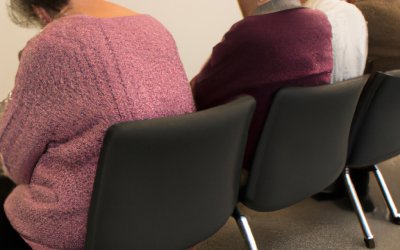Remember “rip-off Britain”? Did your visiting American friends, or the European travellers you met on holiday, ever tell you that they couldn’t understand how you managed to live in this country? “Why on earth do your cars/washing machines/televisions/bathroom fixtures, whatever, cost so much more than ours?” they would exclaim. The press got very interested in this question, having gathered that its readers who were travelling – and shopping – abroad more and more regularly, were beginning to feel like world-class mugs.
Was there a cosy cartel of retailers? Or a quiet price-fixing arrangement imposed by car and appliance manufacturers? When newspapers hit on a campaign that excites public imagination, politicians start to pay attention. So successive governments looked into it and proclaimed that there were lots of reasons why household goods “seemed” to be more expensive here than in almost any other country in the known world.
They arranged consultations with retailers and importers. The Department of Trade and Industry concentrated its collective mind. There was a great deal of throat-clearing and some vaguely threatening noise, and out of it all came precious little. Apart from a change in the limitations on car dealerships (made embarrassingly necessary by people importing cars from Europe), the repeated declarations that “rip-off Britain” was dead were as meaningless as a sale ticket on a dishwasher at your local appliance store.
Well, amazingly enough, the great national swindle is finally dying, and it has nothing whatever to do with political intervention or considered decisions in Whitehall.
What is killing off the British retail price racket is the internet and cheap travel. The big electronics goods chains, the high street appliance retailers and the department stores may be charging the identical inflated price for a tumble dryer or a digital camera, but get on the web and, with a few clicks of the mouse, you can buy the same products – often with a more efficient delivery service – for far less.
Or, as all those ecstatic newspaper features keep telling us, you could book yourself a cheap flight to New York and save enough on your iPod, your trainers and your CDs to pay for your travel and hotel costs.
Sadly, carrying home a dishwasher in your luggage would be a bit more problematic. But, if you don’t want to leave home and go through the rigmarole of airport security, there is the web and a whole panoply of dedicated suppliers who compete, really compete, with one another to offer the lowest price.
What is the moral of this story? An entirely new market form has been created, made possible by an invention – the home computer – and a breathtaking feat of human ingenuity – the internet, which slipped right under the notice of the government regulators, the economic manipulators and the enemies of free choice everywhere.
It has accomplished in a historical nanosecond what years of bureaucratic dithering in the face of vested interests, and government tampering could not do. The free market, allowed to flourish, is giving people what they want and need at fair prices. Well, you might say, that’s all very well for the home computer owner with a credit card in good order – in other words, for the affluent and informed.
How does it help the poor family that needs a washing machine, or the pensioner who desperately wants a new television, who are still dependent on the price-fixed chain store?
Answer: the high street cannot afford to be complacent much longer. When the prices of goods fall drastically in one part of a market, it becomes impossible to sustain outlandishly higher prices in another.
Soon almost every family will have a child at school who will learn how to use the net, and every pensioner a son or a niece who will know how to shop for the best bargain. And the contrast between store prices and web prices (even allowing for the cost of overheads) will become unacceptable. Prices will drop everywhere, to everyone’s advantage. Once the customer gets a real choice, the days of lazy, inefficient business are numbered.
Which brings us to the subject of the National Health Service, which, contrary to a lot of political hot air about “choice”, is still designed to prevent the customer having any real purchase (literal or metaphorical) on healthcare.
The think-tank Reform has just published a report by Nick Bosanquet, professor of health policy at Imperial College London, which makes it clear that the much-publicised improvements in the performance of the NHS are being bought at a vast cost which is utterly disproportionate to their productive value.
The country could have significant improvements “in access and effectiveness” by spending eight to nine per cent of GDP on health, where, in fact, current policy is likely to cost 10.5 to 11 per cent of GDP. Prof Bosanquet points out that, without reform of the service to get more value from existing spending, much of the extra funding provided by government is likely to be wasted.
We are, as a nation, spending a great deal more to get a small improvement in the service, because there are too few incentives to guarantee value for money. Sound familiar? The resistance to consumer choice in healthcare rests on the argument that only the informed and the assertive would benefit. But in a system that permits choice, there is an incentive for more and more people to become informed and assertive (and even those who don’t, benefit from the power of those who do).
How long, I wonder, will people who buy their fridges on the internet passively accept being told which surgeon will operate on them, and when?


